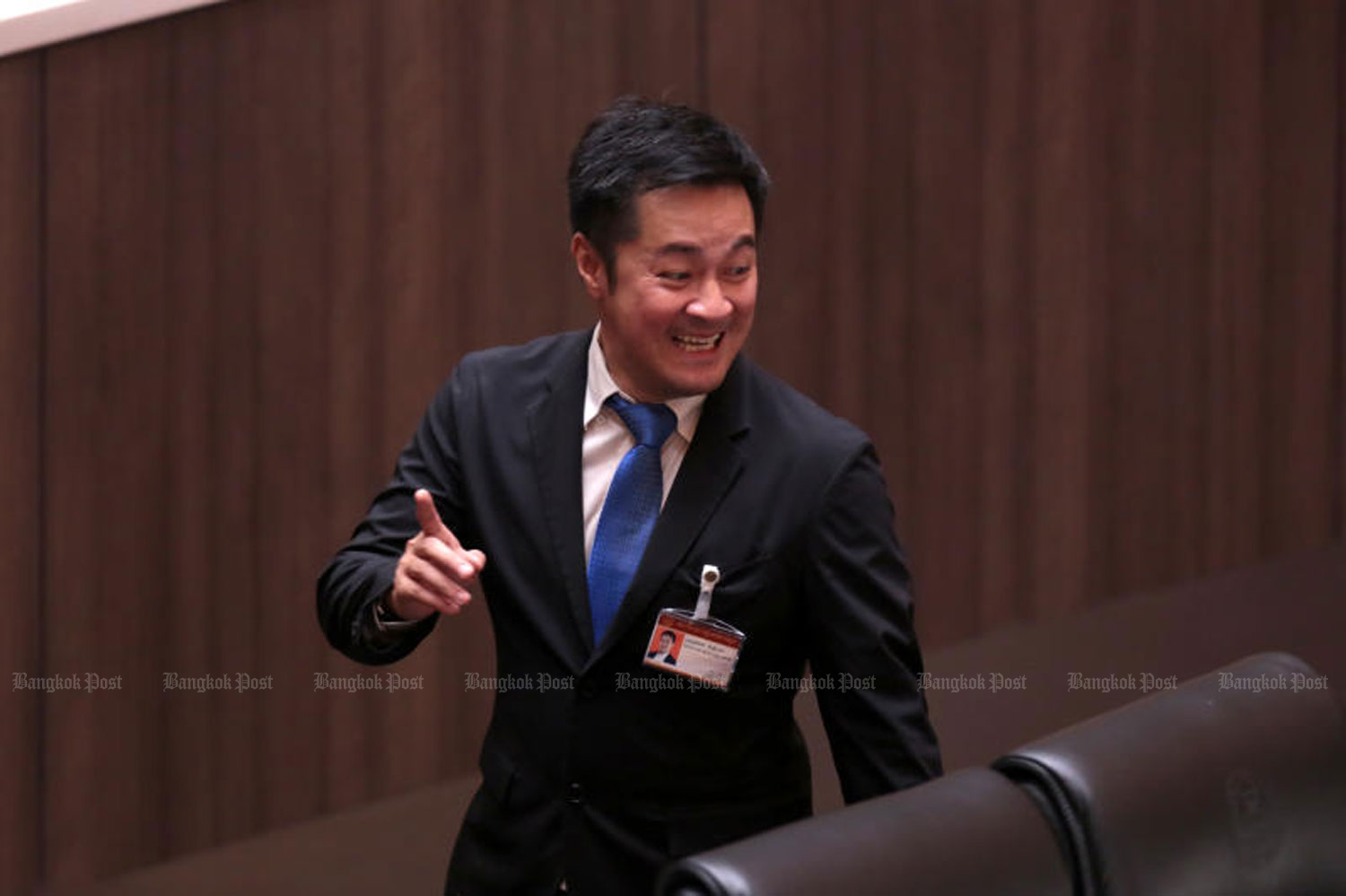
Criminal and ethics investigations are being sought against Deputy House speaker Padipat Suntiphada after a video of him drinking a craft beer caused a stir on social media.
Activist Srisuwan Janya went to parliament on Tuesday and called for Houser Speaker Wan Muhamad Noor Matha to investigate his deputy on suspicion of committing an ethical violation.
Mr Srisuwan said the video broke the Alcoholic Beverage Control Act, which contains stiff penalties for any kind of activity seen to promote drinking.
Numerous people, including some celebrities, have been brought to book for posting pictures of themselves with a glass or bottle of their favourite tipple, on their personal social media. If a label, logo or brand name is visible, fines can range from 50,000 to 500,000 baht.
Media outlets routinely receive warnings from authorities if they carry pictures or video in their news reports of alcoholic beverages with product labels.
Mr Padipat, a Move Forward Party MP for Phitsanulok, was pictured holding up a can or craft beef produced in his home province. Move Forward has been an outspoken advocate for small-scale beer and liquor producers who face obstacles under laws that favour a handful of large and entrenched businesses.
Mr Padipat must face the music for trampling on the ethics of a political post holder, said Mr Srisuwan.
In the past, an ethical investigation against an MP was difficult to pursue, he noted.
“Even when a violation of ethics was confirmed, MPs got away with a mere slap on the wrist,” he said.
“But now ethical infringements carry a severe legal punishment under the National Anti-Corruption Commission (NACC) law.”
He cited the example of Pareena Kraikupt, a former Palang Pracharath Party MP, who lost her MP status after the Supreme Court ruled that she committed a serious violation of political ethics by possessing state land in her constituency in Ratchaburi.
Mr Srisuwan said he planned to file a complaint with the NACC against Mr Padipat in two days.
Mr Srisuwan on Tuesday visited the Office of Alcohol Control Committee (OACC), a division of the Department of Disease Control, where he formally submitted a petition against Mr Padipat.
Mr Srisuwan said the law bars people from committing any act intended to persuade people to drink alcohol by either overt or covert means. In addition to fines of up to 500,000 baht, violators can be jailed for up to a year.
Boonyu Khorpornprasert, a member of a sub-committee studying amendments to the Alcoholic Beverage Control Act, said Mr Padipat had clearly tried to persuade people to consume alcohol via the video, which is an infringement of the act.
“Mr Padipat was not being reasonable to assert that the law was unfair. If he disagreed with the Act, he should push for the law to be improved. But in the meantime, he must obey it as it is,“ said Mr Boonyu.
In practice, the OACC can enforce the law against the politician right away without having to wait for a complainant to file a petition.
On Aug 14, Mr Padipat said the ban on the advertising of craft beers, which could generate economic wealth for the provinces, had deterred local brewers from putting out word about their products.
The term “advertisement” under the Act should be redefined to remove the criminal aspect from it, he said. This is because producers were entitled to advertise the contents of their craft beers so that people will be aware of what they are consuming, and the potential danger of developing allergy from drinking the beers, he said.
Mr Boonyu acknowledged that the current punishment under the Act was excessive, while major alcoholic beverage players had managed to dodge the law by displaying their brand logos at sporting events they sponsored.